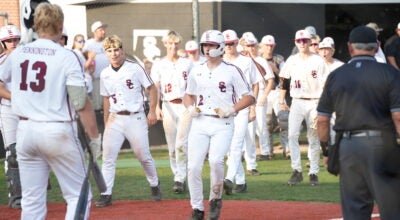Senate fails to override veto of alcohol legislation
Published 6:30 pm Wednesday, May 6, 2009
In a 13-15 vote late Wednesday afternoon, the Alabama Senate failed to override Gov. Bob Riley’s veto of legislation that would allow for Sunday alcohol sales in some Shelby County restaurants.
Eighteen votes were needed for an override.
Unless the State Senate revisits the issue this legislative session, Shelby County restaurants that currently sell alcohol on Sundays will no longer be able to do so after Sept. 30, when their club license expires.
After vetoing the legislation, the Senate voted 17 to 9 to carry it over, which means it could be brought up again before the end of the legislative session this week.
Also, the vetoed legislation would have allowed towns of at least 1,000 people in dry counties to authorize alcohol sales.
Earlier in the day, State Rep. Jimmy Martin, D-Clanton, the original sponsor of the bill, said he and Shelby County State Rep. Cam Ward, R-Alabaster, were still trying to convince senators to override Riley’s veto of the legislation.
“We’re still working and believe we are one short,” Martin said before the vote was held, noting the governor was also working on building support in holding the veto.
“We are still working, but are now having to work against the governor. He is working extremely hard to convince senators of the need to keep this bill from passing.”
Contacted prior to the vote, State Sen. Hank Erwin, R-Montevallo, was asked if he would support the bill — a bill the other legislators from the affected counties strongly supported.
“I am going to support my governor and my party,” Erwin said. “The governor is very aware of what is going on in Chilton County and very aware of what is going on in Shelby County. I am going to support his veto.”
In his comments against overriding the veto, Erwin said the bill did not just impact Chilton County and Shelby County.
“The bill affected a lot more people than just Chilton County and Shelby County,” Erwin said. “It impacts every dry county in the state, and I had to take that into consideration.”
Riley’s unconstitutional comments came from the fact the bill handled two separate issues — Chilton County’s small town referendums and Shelby County’s continued Sunday alcohol sales at restaurants.
“I still do not understand why the governor believes this bill to be unconstitutional,” Martin said. “Even before the bill came up for review in committee, it received a judicial review. Plus, no one can call anything unconstitutional other than the courts.”
Todd Stacy, a spokesman for the governor, said Riley wants to make certain constituents know his veto was not because of Sunday sales of alcohol.
“The governor was very clear with the sponsor that combining the two issues in one bill would force him to veto the legislation. The continued sale of alcohol on Sundays in Shelby County is not the issue. In fact, the administration will work with the affected establishments to help them come into compliance and make sure they are not unfairly impacted by the previous administration’s interpretation of the law,” Stacy said. “The governor just this week signed into law a bill that calls for a referendum in Houston County authorizing the sale of alcohol on Sunday. So, obviously, Sunday sales is not the problem. The problem is this bill had clear flaws, both constitutionally and functionally. That’s why the governor vetoed it.”









